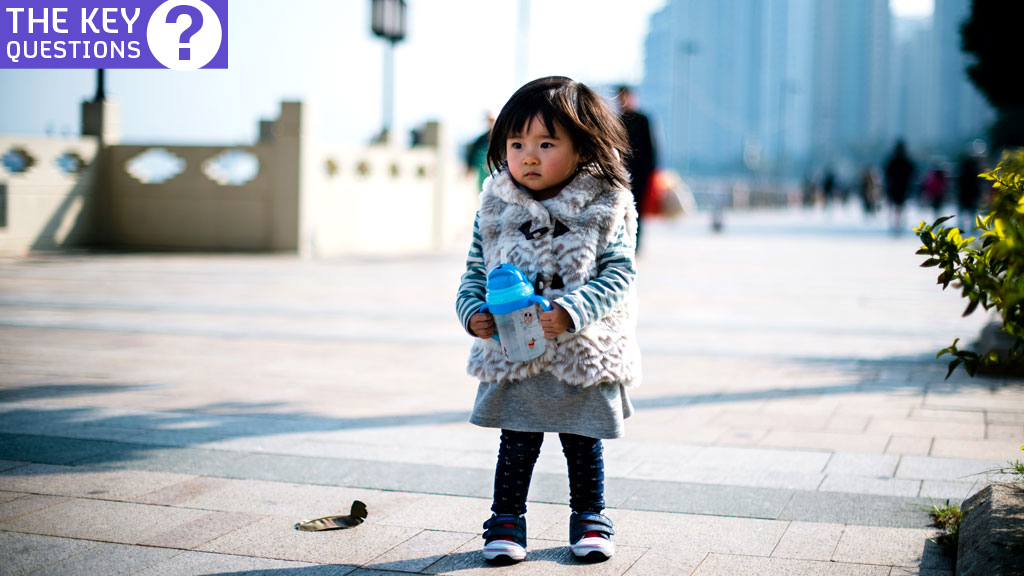China’s one-child policy – the key questions
Beijing is to ease its strict one-child policy, as part of a range of sweeping reforms. Channel 4 News answers the key questions on the controversial policy.

What has been announced?
After decades of strictly enforcing the one child policy for most would-be parents, couples will now be allowed to have two children provided just one of the parents is an only child.
China‘s official Xinhua news agency announced the shift in policy, along with a decision to abolish forced labour camps and a “step by step” withdrawal of the death penalty, after a key meeting of the ruling Communist party’s central committee.
What was the policy before?
The one-child policy was launched by China’s former president Deng Xiaoping in 1979 as an attempt to stem China’s population growth and get the country out of poverty.
In the 1980s, the government allowed families with a girl in some rural areas to have a second child. Rules were also recently relaxed to allow urban couples to have a second child if both parents had no siblings. However in cities, couples were often allowed to have more children – they just had to pay for them.
How was it enforced?
At best, huge fines were imposed on couples who had more than one child.
But human rights groups say that forced abortions, infanticide and involuntary sterilisations have also been used on those couples who flouted the policy, despite these practices being banned by the government.
“This appears to be an easing of the policy not a wholesale change, so important but not cataclysmic,” writes International Editor Lindsey Hilsum. “Xi Jinping, China’s new president, is struggling to get reform through – but there is a lot of resistance within the party.
“There are many problems with the one child policy. People pay a fine for having a second child, so the wealthy just pay up. This tweaking of the policy will benefit many couples but it won’t solve the problem of forced abortions in the villages which happens if local officials are over zealous and cruel.
“Decisions are made in Beijing but it’s often hard for the Party to enforce change in the provinces. As they say in China: the sky is high and the emperor is far away.”
What impact has it had?
In economic terms, the policy is credited by some as helping to fuel China’s huge growth. “The policy probably did have the desired effect, which was to help the effort to increase economic growth and raise standards of large numbers of people,” China expert and author Martin Jacques told Channel 4 News.
In demographic terms, the impact has been huge. Beijing says the policy has averted 400 million births since 1980, and this has resulted in a top-heavy, ageing population. The over-60s make up 13.3 per cent of the population, compared with over 10 per cent a decade ago. By 2030, there is expected to be 360m elderly people.
The demographic significance is minimal but the political significance is substantial. Wang Fey
The working-age population has shrunk, and is projected to reduce even more in coming years, which will continue to have an impact on the country’s labour market.
The number of children under 14 has also fallen, and the policy is also credited for what is commonly known as “little emperor syndrome”, where only children are spoilt by doting parents and grandparents.
But it has also resulted a skewed gender ratio. As families have aborted baby girls over boys, or even left them to die in the hope that they can have a boy, there are now around 118 boys born for every 100 girls, against a global average of 103 to 107 boys per 100 girls.

What will the change bring about?
“The demographic significance is minimal but the political significance is substantial,” said Wang Feng, a sociology professor at Fudan University specialising in China’s demographics, speaking before the announcement.
“This is one of the most urgent policy changes that we’ve been awaiting for years. What this will mean is a very speedy abolishment of the one-child policy.”
Aside from concrete demographic impact, the policy change is also a signifier of the new president Xi Jinping’s intentions, after taking over from Hu Jintao. Around 60 separate reforms were announced after the “third plenary” meeting of the Communist party’s leaders. “We must certainly have the courage and conviction to renew ourselves,” said Mr Xi.
“It is the end of the Deng Xiaoping model, and the beginning of something new – economically, socially, maybe legally,” said Mr Jacques.
However it may take time, he added: “The Chinese are very methodical in government policy. They don’t introduce anything in a big bang. It’s trial and error, testing things. ‘Cross the river by feeling for the stones’.”
What do Chinese people think?
On the one hand, the one-child policy has helped Chinese society to become more economically stable and allowed women to focus on their career. Martin Jacques said: “There’s no question that it has been very popular among the Chinese. It’s been seen as a very important element in the modernisation process, because it has enabled them to do what they’ve done.”
But undoubtedly, there are other couples who want to have more children – or even the option of expanding their family – and will relish allowing more control over their personal lives. Xinhua news agency quoted an internet user, Hikaruhuang, as welcoming the reform as “very good”.
The agency wrote: “She said her child would have a companion and less pressure in elder care.”